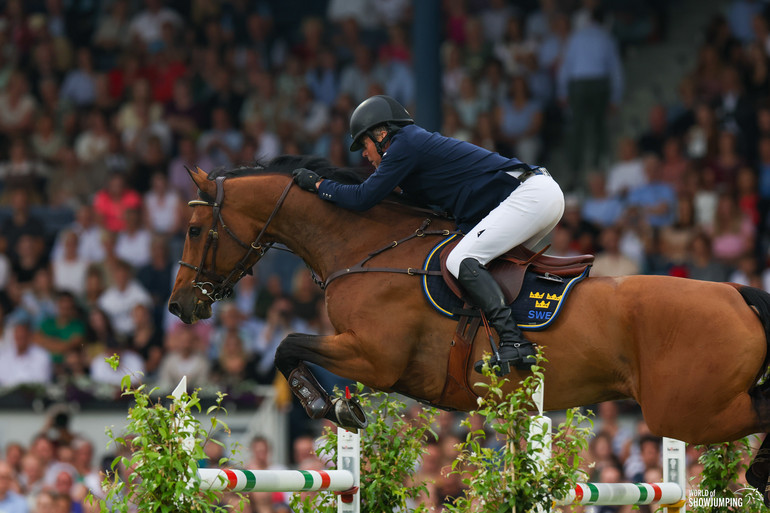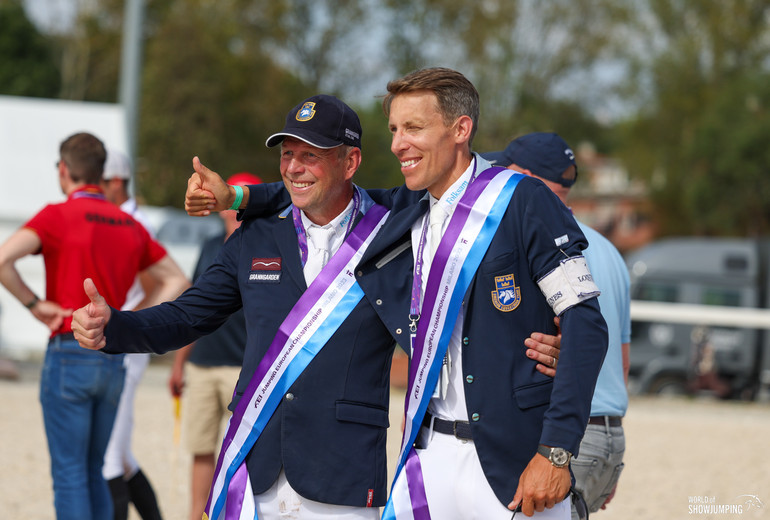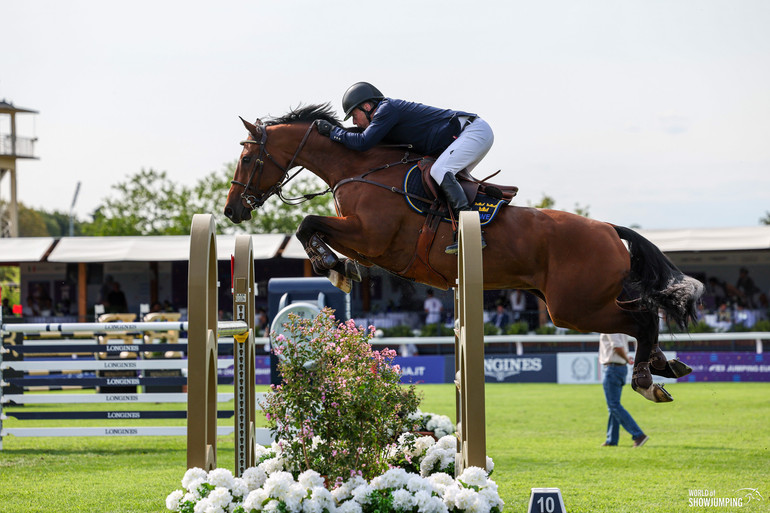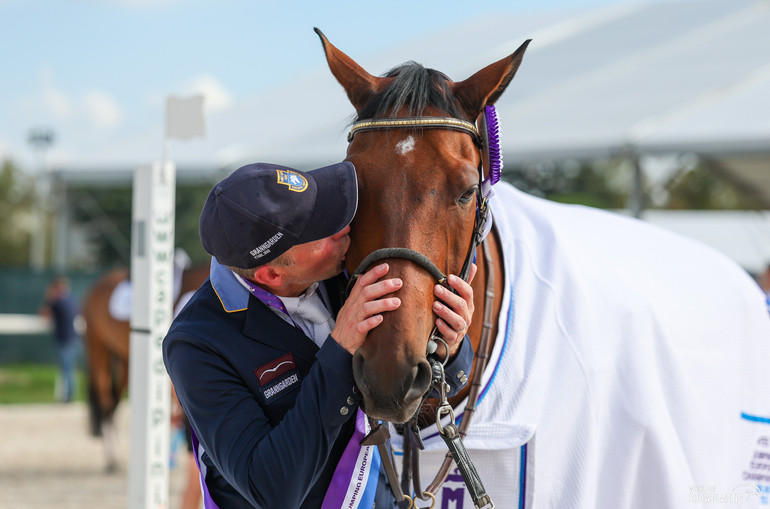Text © World of Showjumping
“Talent can be dangerous; when things are too easy in the beginning, it can be hard to work through challenges later on – and everyone is going to meet challenges, in one way or another,” Jens Fredricson tells World of Showjumping. “I think being able to ride well is one form of talent, but being able to learn to ride well, is another – and maybe the latter will take you further.”
“Walk your talk, that's very important,” Fredricson continues. “If you say something, do it. That's my advice to all young people – because having big goals won’t take you anywhere if you don’t put in the work.”
Walk your talk, that's very important
The 57-year-old Swedish Olympian – who on a daily basis works as the stable master at the two Swedish national equestrian centres at Flyinge and Strömsholm – knows what he is talking about. Riding Markan Cosmopolit (Cohiba VDL x Calido I), Fredricson won team gold both at the 2022 World Championships in Herning (DEN) and at the 2023 European Championships in Milan (ITA). At the 2022 FEI Jumping World Cup™ Final in Leipzig (GER) – Fredricson’s third finals – the pair placed third.
World of Showjumping sat down with Fredricson during The Young Riders Academy’s (YRA) selection days to learn about his approach to coaching the next generation of Olympians, and what kind of lessons he has learned throughout his long and successful career. “The Young Riders Academy is a great initiative,” Fredricson – who was part of the selection panel for the 2025 group – says.
Encourage the next generation
“I'm very much into classical riding, working with rhythm and balance, focusing on the rider’s position and the lines in between the fences,” Fredricson tells about his focus when teaching.
It's very important to be coachable
“It's very important to be coachable, and I feel that the youth these days actually is. I am very positive when it comes to the future, and I think we should encourage the next generation instead of criticizing them. I think they are curious and interested to learn. They can also gain knowledge much easier. These days, you can just open your phone and listen to a pod, read an article – information is accessible in a whole different way than it was when I was young.”
“When I was a young rider, there was never actually a question of being a professional because there were no professional riders in Sweden at that time,” Fredricson tells about his own youth and the path he has chosen. “I used to work at the King’s Stable, driving his coaching horses at different occasions. I had the chance to keep my horses there and train them, and I did that for two years. Then I went to the military, where I had the chance to have the horses as well. Immediately after the military, I started to train others and rode in my spare time. It was actually only after I turned 50 that I was in a situation where I could ride half days.”
In our family, when we were young, our father was totally uninterested to hear our complaints
“In our family, when we were young, our father was totally uninterested to hear our complaints,” he recalls. “The only comment we would get was a direct question: ‘Well, how are you going to solve that?’. It instilled a curiosity in us that both Peder [Editor’s note: Jens’s brother] and I have to this day. The sport has developed so much since I was young. I think it is interesting now, seeing riders like Henrik [von Eckermann] and Peder always trying to develop themselves. Both of them are striving to be better; they look at shoeing, equipment, and try different approaches. I see them as pathfinders; I believe they have been a part of developing the professionality in the sport.”
“If there is something I could have changed, I think I should have worked more on my position when I was young,” Fredricson continues. “However, I must say we had some fantastic trainers in Sweden that I had the chance to ride for, and I still have their words in my mind. They would keep talking about rhythm, taking your time, making a good turn, being focused when you're riding; doing the basics right. I think Jana Wannius – who was the Swedish chef d’equipe when I was younger – understood that good trainers are essential for development. We had trainers like Franke Sloothaak, Henk Nooren and Nelson Pessoa coming to Sweden. The Young Riders Academy has the same view; the trainers involved are world-class.”
Who you are is what you stand for
The biggest lesson Fredricson himself has learned is the importance of time. “Patience is key,” he says. “What the students want to do in three days, takes three months to achieve. You can reach your goals, but you need to be passionate and have patience. Take your time, do the right things, be interested, don't hurry – those are the things I live by.”
You can reach your goals, but you need to be passionate and have patience
And Fredricson is definitely living as he preaches. In 2024, he did five international appearances. “It is important that your identity and self-worth are not tied to the results in the ring,” he says. “Who you are is what you stand for. Lately, I have done a bit less on the sport side, but it doesn’t mean I’ve stopped improving. This time outside of the ring has been great, and I have had a lot of time to be with my family. Both of my children are riding and very excited about it, and I have enjoyed spending time with them. In this way, maybe this time “off” has been the most important year for me personally.”
As Fredricson’s championship ride Markan Cosmopolit is returning to competition, Fredricson is looking forward to the possibility of more international appearances. “I would be happy to ride some Nations Cups again and maybe aim for the World Championship in Aachen in 2026,” he concludes. “Aachen is a place where Cosmo feels his best.”
24.4.2025 No reproduction of any of the content in this article will be accepted without a written permission, all rights reserved © World of Showjumping.com. If copyright violations occur, a penalty fee will apply.












